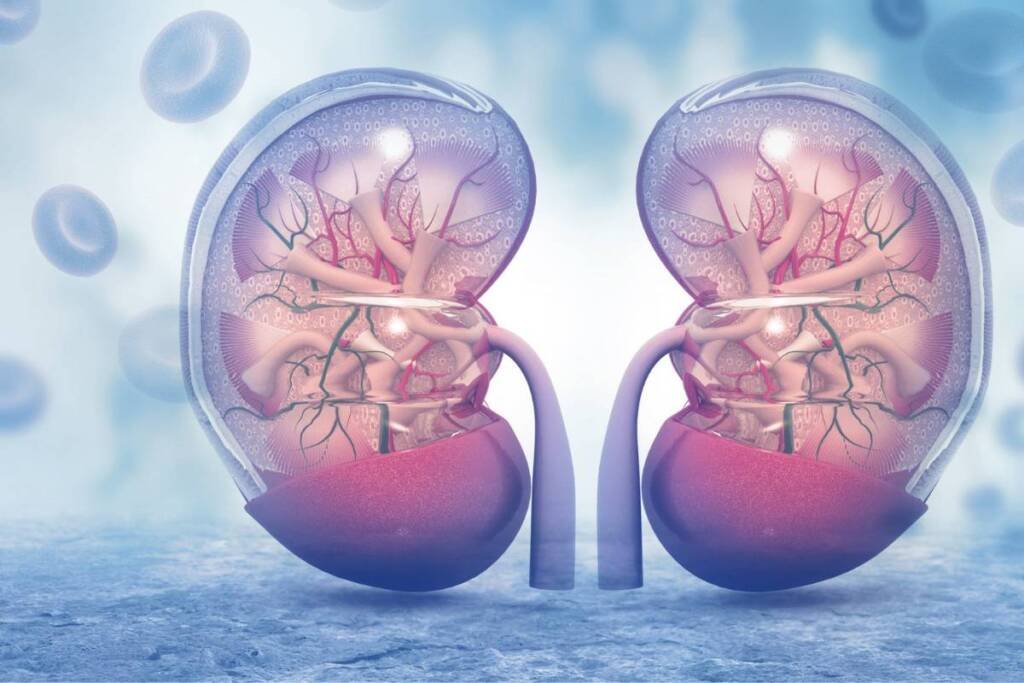Kidney cancer, or renal cell carcinoma (RCC), is one of the most common types of cancer in adults, affecting about 73,000 people in the US each year. It is also one of the most difficult to treat, especially when it spreads to other parts of the body (metastatic RCC). The standard treatment for metastatic RCC has been drugs that block the growth of blood vessels that feed the tumor, such as sunitinib. However, these drugs have limited effectiveness and can cause serious side effects.
In recent years, a new class of drugs called immune checkpoint inhibitors has emerged as a promising alternative for metastatic RCC. These drugs work by unleashing the body’s own immune system to attack the cancer cells. They target molecules that act as brakes on the immune response, such as PD-1 and CTLA-4. By blocking these molecules, the drugs enhance the ability of immune cells called T cells to recognize and kill cancer cells.
One of the most successful combinations of immune checkpoint inhibitors for metastatic RCC is nivolumab and ipilimumab. Nivolumab blocks PD-1, while ipilimumab blocks CTLA-4. Together, they create a synergistic effect that boosts the anti-tumor activity of T cells. In a landmark clinical trial called CheckMate 214, this combination was compared with sunitinib in patients with intermediate or poor risk metastatic RCC. The results were impressive: nivolumab and ipilimumab improved overall survival, objective response rate, and complete response rate compared with sunitinib. Moreover, the combination was effective regardless of the molecular subtype or biomarker status of the tumor.
However, not all patients with metastatic RCC respond equally to nivolumab and ipilimumab. To better understand how different factors affect the outcomes of this combination, a phase 2 trial called BIONIKK was conducted. This trial enrolled patients with metastatic RCC who had different molecular subtypes and biomarkers, and randomized them to receive either nivolumab alone, nivolumab and ipilimumab, or a VEGF pathway inhibitor (TKI) in the frontline setting.
The BIONIKK trial recently reported updated results with a median follow-up of 42.1 months. The trial confirmed that nivolumab and ipilimumab improved overall survival compared with nivolumab alone or TKI in all molecular subtypes. However, some subtypes benefited more than others from this combination. For example, patients with ccRCC-4 subtype, which is characterized by high expression of immune genes and low expression of angiogenesis genes, had a median overall survival that was not reached with nivolumab and ipilimumab, compared with 35 months with nivolumab alone or TKI. On the other hand, patients with ccRCC-2 subtype, which is characterized by low expression of immune genes and high expression of angiogenesis genes, had similar outcomes with nivolumab and ipilimumab or TKI.
The BIONIKK trial also showed that nivolumab and ipilimumab increased the objective response rate compared with nivolumab alone or TKI in all molecular subtypes. However, some subtypes had higher response rates than others. For instance, patients with ccRCC-4 subtype had a 55% response rate with nivolumab and ipilimumab, compared with 27% with nivolumab alone or TKI. Conversely, patients with ccRCC-2 subtype had similar response rates with nivolumab and ipilimumab or TKI (54% vs 58%).
Another interesting finding from the BIONIKK trial was that the choice of first-line treatment influenced the outcomes of second-line treatment after progression. Most patients who progressed on any first-line treatment received a TKI as second-line treatment, mainly cabozantinib, which is known to be effective in this setting. However, the efficacy of TKI as second-line treatment seemed to be higher in patients who received nivolumab and ipilimumab as first-line treatment than in those who received nivolumab alone or TKI as first-line treatment. For example, patients with ccRCC-4 subtype who received nivolumab and ipilimumab as first-line treatment had a 33% response rate and a median progression-free survival of 12 months with TKI as second-line treatment, compared with 11% response rate and 8 months progression-free survival in those who received nivolumab alone or TKI as first-line treatment.
These results suggest that nivolumab and ipilimumab may have a long-lasting effect on the tumor microenvironment and the immune system, making the tumor more sensitive to subsequent TKI treatment. Alternatively, TKI may have a negative impact on the immune system, making the tumor more resistant to subsequent nivolumab and ipilimumab treatment. These hypotheses need to be further investigated in future studies.
Of course, nivolumab and ipilimumab are not without challenges. They can cause immune-related adverse events, such as inflammation of various organs, that may require treatment interruption or discontinuation. These events can be managed with steroids or other immunosuppressive drugs, but they can also affect the quality of life of patients. Therefore, it is important to monitor patients closely and educate them about the signs and symptoms of potential complications.
Nivolumab and ipilimumab represent a major breakthrough in the treatment of metastatic RCC. They offer hope and improved outcomes for many patients who have limited options. However, they are not a cure for everyone. More research is needed to identify biomarkers that can predict who will benefit from this combination, and to develop strategies to overcome resistance and enhance efficacy. Furthermore, other combinations of immune checkpoint





























